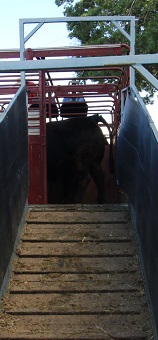Course Duration - 900 hours
Farming today is more than just growing crops or livestock.
 To succeed, you need to learn to:
To succeed, you need to learn to:
- grow the right produce at the right time;
- process it in a way that produces the most profitable product;
- manage your assets (land, people, money) in a sustainable way.
Farms are diverse in size, how they are managed and what they produce. They might be producing meat, grain, wool, milk, vegetables, fruit, oils or something else.
They may be producing more than one type of produce. To be a sustainable agribusiness they may need to have diversified production; particularly with the volatile nature of such factors as the weather and markets.
Sometimes things are grown to reduce costs , rather than directly sell to someone else; for example hay or fodder crops grown by a dairy farmer to feed his herd in times of poor pasture. Alternatively, by having a milking house cow, or running a few head of beef for meat are simple ways of reducing farm costs.
For many farm products, there are varying ways of producing the “final product” (i.e. different production systems).
- Meat or plants may be grown fast or slow (quality and tenderness of food may be affected by speed of growth)
- Most things (e.g. meat, fruit, wheat, etc.), can be grown in a natural situation with minimum human intervention; or a more unnatural situation, with greater human intervention.
- Produce may be grown on a small scale, or on a large scale
- Systems can be monocultures (producing one thing only) or polycultures (where different animals and plants are integrated so that different products are taken from the same enterprise).
- Some systems are more labour intensive; others (e.g. mechanised systems) may be more manageable Land-care considerations may restrict the systems available (e.g. to prevent land degradation, it may be necessary to use a particular type of system).
Generally polycultures are less likely to cause land degradation.
Varying Production Systems
There are always lots of choices to be made about how to produce crops or livestock. The choices you may may be different according to not only what you grow, but the soil conditions, climate, cost of labour, cost of land, distance to market, cost of marketing, competition, and much more.
This course will Raise Your Awareness of the Factors that Impact Agribusiness
- Improve your capacity to make better decisions about what to farm, how to farm it, how to market it and ultimately how to run a more profitable agribusiness - both as a farmer; or as a provider of goods and services to a farm.
You can start the course at any time. If you have any questions or want help in choosing the right modules to suit your own career goals, please get in touch.
Is this the course for you?
- Do you want to study at a time and location that is convenient to you and fits in around your work and home schedule?
- Do you want to learn from agricultural experts?
- Do you want to study courses written and tutored by experts in agriculture and online learning?
- Do you want to improve your job and career prospects by studying agribusiness to advanced levels?
- Do you want to improve your existing business or start a new agricultural business?
If the answer to some or all of these questions apply to you, then this is the course for you!
Any Questions?
Our agricultural tutors are more than happy to answer any questions.
Or